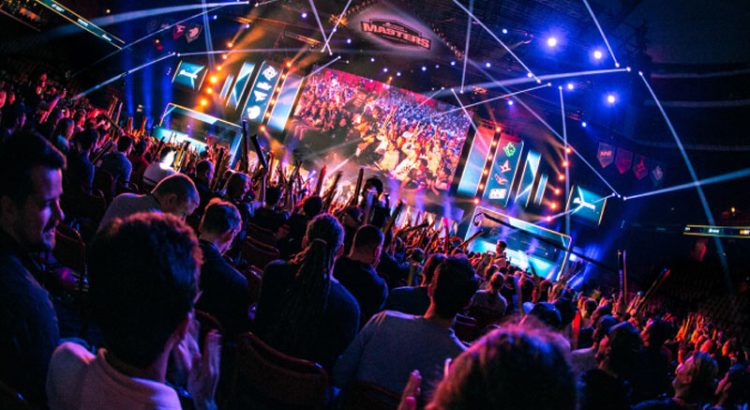The official CS:GO Twitter handle jokingly tweeted about a hypothetical overtime scenario in a CS:GO World Cup following the dramatic penalty shootout in the 2022 FIFA World Cup final that saw Argentina defeat France.
The tweet received over 25,000 likes, with one of the top replies advocating for a biennial CS:GO World Cup organized by Valve. The humorous nature of tweets also shed light on the status of national events in the CS:GO esports ecosystem: they exist but aren’t taken seriously.
The State Of International CS:GO Events
The World Cyber Games (WCG) is the closest analogue to an esports World Cup. It is also known as the Esports Olympics, with teams honored with gold, silver, and bronze medals for their performances. The competition was a yearly event taking place worldwide but got shut down in 2015 before coming back in 2019.
The last WCG, in 2020, included Crossfire, Warcraft III: Reforged, Honors of Kings and FIFA events, but none of the other major esports titles. In 2022-23, the WCG has been branded as ‘the start of a new global tournament’ and perhaps one of the green flags in terms of drawing bigger audiences is the fact that Valorant esports is now part of the line-up; but you would be hard-pressed to find a lot of people in the larger esports global audience who would be aware of this rebranded version of the tournament in the first place.
The Electronic Sports World Convention (ESWC) was another international championship with national qualifiers, previously part of the CS:GO Majors circuit, which came to a screeching halt in 2019.
@ CS:GO DreamHack
This leaves the one other major body hosting international esports events, which is the International Esports Federation (IESF). They are one of the federations advocating for esports to get recognition as a legitimate sport. They have hosted 14 World Esports Championships and are the only one of three mentioned here that have some semblance of a presence. The last event included CS:GO, but they’re barely scraping by.
This is not a great look for national esports events. A big issue here is that the teams that enter these competitions are of a lower tier. Without the best players, it isn’t easy to attract an audience and market these events.
Of course, it wasn’t always like this. National esports events had a lot of interest before 2010, but Riot Games’ arrival shook the entire esports industry. They paved the path for other developers to handle their esports events without third-party intervention from federations. Steps like this have led to esports’ emergence as the growing industry it is today – but we are still far away from anything resembling World Cups in other popular sports.
National Events Create A Unique Atmosphere
In itself, the lack of a well produced global event isn’t a bad thing – the football World Cup itself only exists in the public consciousness for a few months every year it is held, while club and franchise leagues fuel the sport otherwise. Most major sports events can’t incite the passion displayed in quadrennial FIFA World Cup events. Most sports journalists and fans accept that the FIFA World Cup has taken over the Olympics as the most-watched sporting event in the world.
Other major sports, like basketball, have also struggled to emulate something similar. There are very few sports that can actually claim to be truly global ones, for a variety of reasons. When viewed from that lens, the esports industry has a distinct advantage – video games are played worldwide and there is no reason to believe they won’t become any more ubiquitous over the next decade or so – which raises the potential for a model similar to the World Cup.
As tongue-in-cheek as the tweet from CS:GO handle and the replies were, there’s no denying a desire for something akin to a FIFA World Cup within the esports community. But who in the esports world can actually make a meaningful first step towards something like that?
© ECS
Can Valve And Other Developers Be The Answer?
As mentioned earlier, the main issue with creating and consistently marketing inter-country events is the quality of participation. The existence of a large player base is only Step 0. Consistently drawing top talent and financing such a scene requires a level of control which federations will never realistically achieve, given that each game is an ecosystem in itself, and a quite lucrative one at that.
The other issue is fragmentation – if football as an industry were to be split into more than 10 different formats, each one with their own laws, formats, fans and superstars, then FIFA would have all the challenges that esports federations are themselves facing.
So, more and more, it’s clear that the only movers in this space can be developers themselves. If we were to imagine the start of a CS:GO World Cup, there is simply no one in the world who could organize it other than Valve themselves.
As any other major developer would, Valve knows the ins and outs of the CS:GO ecosystem and are better equipped on all fronts – finances, talent pool, audience connect – than the many inactive esport federations mentioned earlier.
With an IEM Major taking place in South America for the first time this year, CS:GO fans and organizers got a peek into what taking CS:GO events outside Europe and North America looks like, and the reception was unlike anything seen in CS:GO previously. A CS:GO World Cup, in theory, could have a larger impact – and fans seem to have an appetite for it, going by the response to their tweets.

